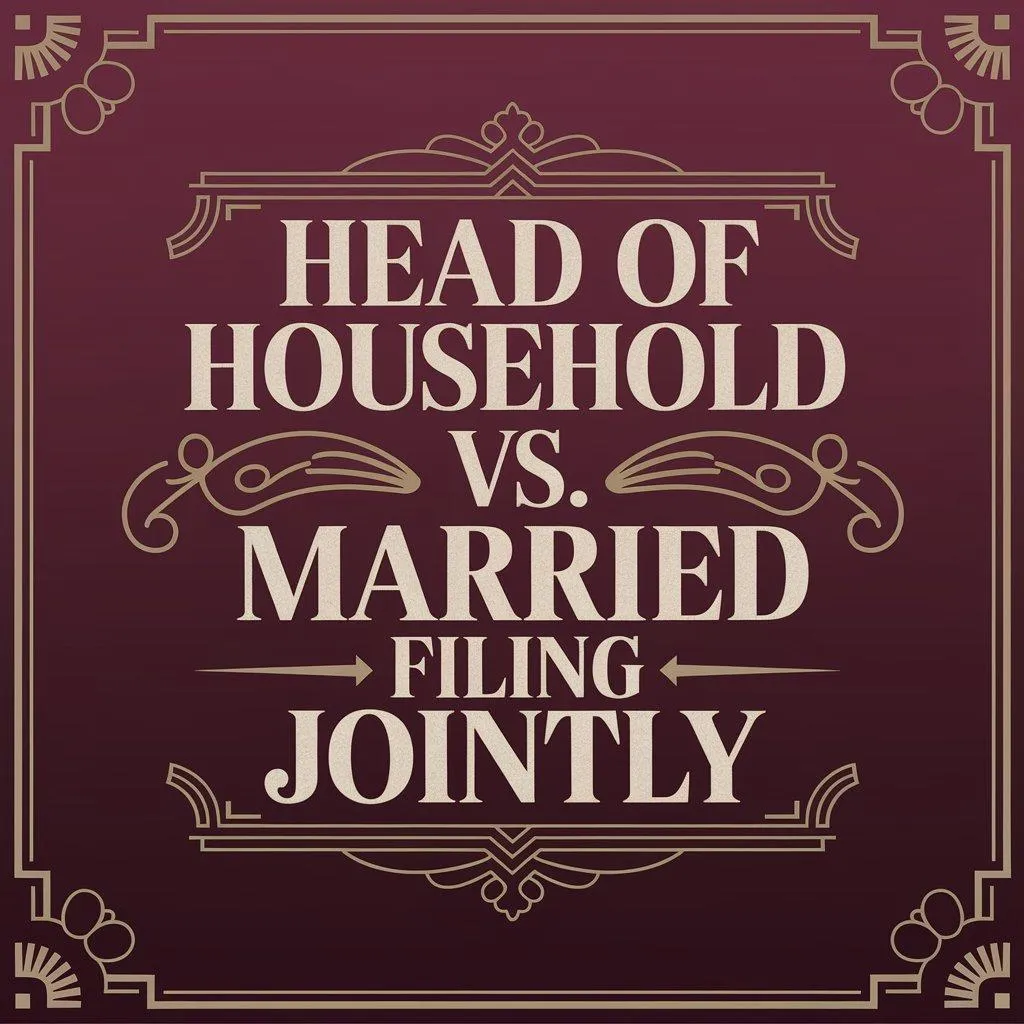
Head of Household vs. Married Filing Jointly: What’s Right for You?
When it’s time to file taxes, one decision can make or break your return: choosing the right filing status.
And if you’re a single parent, newly married, or managing multiple income streams—especially as a business owner—knowing whether to file Head of Household or Married Filing Jointly can impact everything from your tax refund to your tax liability.
Let’s break down the differences so you can make the smartest choice for your situation.

💡 Why Your Filing Status Matters
Your filing status determines:
The standard deduction you qualify for
Your tax bracket
Eligibility for certain credits and deductions
It’s a core piece of your tax planning strategy—and the sooner you understand it, the better you can plan ahead.
📌 What Is Head of Household?
To file as Head of Household (HOH), you must:
✅ Be unmarried or considered unmarried on the last day of the tax year
✅ Have paid more than half the cost of keeping up your home
✅ Have a qualifying dependent living with you for more than half the year
Why it’s powerful:
HOH status offers a higher standard deduction than filing Single and often gives you a lower tax rate.
If you're a single parent, HOH can be a strategic tool in your tax planning playbook.
📌 What Does Married Filing Jointly Mean?
If you’re married, you can choose to file jointly with your spouse. This status:
✅ Combines your incomes
✅ Shares deductions and credits
✅ Often qualifies you for the most favorable tax brackets
Why it’s beneficial:
Filing jointly usually lowers your total tax bill—especially if one spouse earns significantly more. It also simplifies documentation and improves eligibility for things like the Earned Income Tax Credit (EITC) or Child Tax Credit.
📊 Key Differences at a Glance

🧠 Which Filing Status Saves You More?
Here’s the truth: there’s no one-size-fits-all answer.
Your income, dependents, marital situation, and even whether you own a business can all affect the best route. That’s where smart tax planning for entrepreneurs and families comes in.
At Consult With Erika, we help you make strategic filing decisions before tax season to set you up for the highest return and the lowest liability.
✅ Tips for Choosing the Right Filing Status
Check eligibility for both statuses. Some may qualify for HOH even if they’re technically married but lived apart the last six months.
Run the numbers. Use a tax calculator or work with a pro to compare refund outcomes.
Review dependents. Claiming the right child or family member matters.
Factor in your business. If you're self-employed, this status could affect your deductions, including the Qualified Business Income Deduction (QBI).
📞 Ready to Get Clarity?
If you're unsure which filing status benefits you most—or you just want to make sure your entire tax picture is solid—let’s talk.
✨ Book your free 15-minute strategy call now:
👉 https://calendly.com/consultwitherika/15-min-strategy-call

